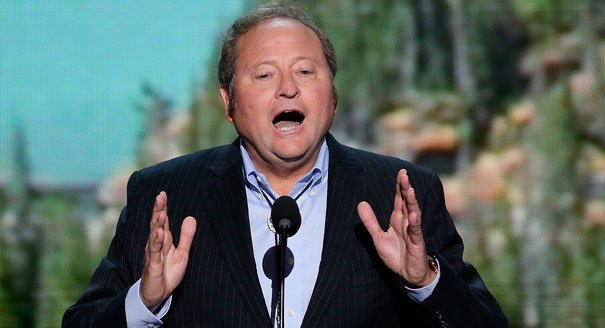Color me surprised if what Democratic voters want after Barack Obama is someone who’s even further to the left on health care, significantly to the right on energy and gun policy, and unable to name any positive achievements by the current president.
Videos by Rare
That said, here’s a profile of someone who’s testing the waters as just such a candidate, former Montana Gov. Brian Schweitzer:
“A Schweitzer presidential candidacy would be a long shot by any measure. He has no national profile and a heterodox political persona that’s served him well in rural, libertarian, and energy rich Montana but doesn’t necessarily sync with the average Democratic primary voter. [Hillary] Clinton, while still undeclared, is such an overwhelming favorite that donors-in-waiting are already competing for territory.
“But what Schweitzer does have is a message that’s unique in the likely Democratic field. The former governor is gambling that Democrats won’t just want an alternative to Clinton in 2016 — they’ll want a complete and total rejection of the Obama presidency.
“The left-leaning issues Schweitzer is most passionate about — single-payer health care, civil liberties, pulling troops out of Afghanistan — are areas where Obama has run into trouble with progressive activists. But he skews right on issues like expanding domestic oil and coal production and protecting gun rights, where Obama has held relatively strong with his base.
“A third-generation rancher rarely seen without a bolo tie, Schweitzer gained a devoted following in Montana espousing ‘prairie populism’ — an approach that included vetoing Republican bills with a hot branding iron and airing campaign ads where he blew away federal ID cards with a shotgun. He holds an advanced degree in soil science, which he put to use in Libya and Saudi Arabia working on agricultural projects before he got into politics. He practices his Arabic by chatting up New York cabbies.”
I’d tend to agree Schweitzer is a longshot, sort of a 2016 Democratic primary version of what Jon Huntsman tried to be to Republicans in 2012. You may recall Huntsman didn’t fare so well in that election.
But I’m intrigued by what is going to be a constant question over the next two years: Can any Democrat beat Hillary? Few people thought that was possible in 2008, but Obama beat her anyway. And yet, she is once again being described with an aura of inevitability. There a number of Democrats — Vice President Biden, Maryland Gov. Martin O’Malley, New York Gov. Andrew Cuomo, Schweitzer, among others — who might rather gamble that she’s beatable again than stomach the prospect of waiting until 2024.
And there is, of course, the chance she won’t actually run.
In the meantime, Hillary’s aura of inevitability will also have an effect on the wide-open GOP primary. While Republicans tend to nominate the presumptive next person in line (George H.W. Bush in 1988, Bob Dole in 1996, John McCain in 2008, Mitt Romney in 2012), there isn’t really such a person this time around. Rick Santorum was the runner-up in 2012, but he’s anything but a shoo-in for the 2016 nomination. Absent a “next in line” candidate, there may be a tendency to nominate a (figurative, of course) “Hillary killer” who gives the party the best chance of beating the former First Lady.
But what if she isn’t the nominee, for whatever reason? How would a GOP nominee drafted to beat Hillary fare against someone like Schweitzer?
However unlikely their candidacies, pols like Schweitzer do serve as a reminder the 2016 election just might not go according to script.



